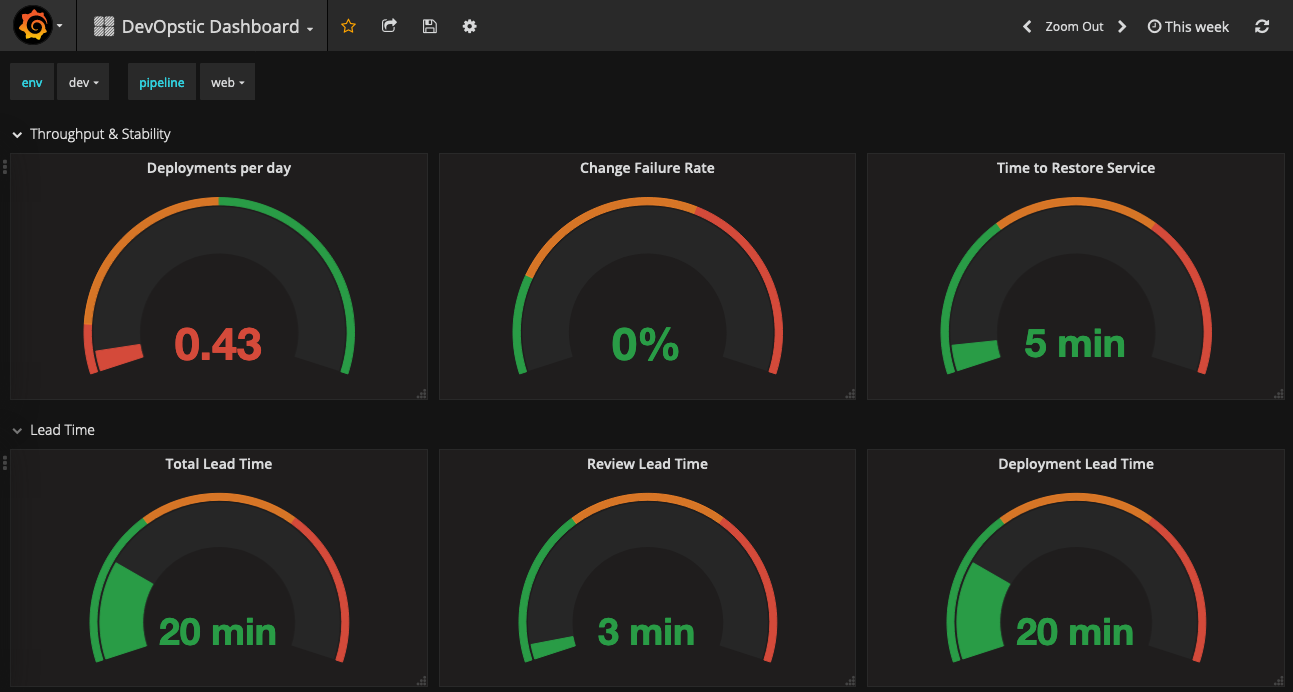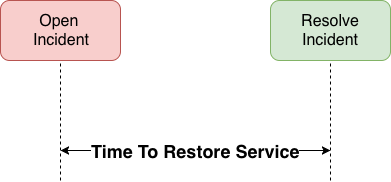DevOpstic
Overview
DevOpstic allows you to store and display information related to your DevOps pipelines.
It's composed of:
- a REST api to receive events related to commit transition and incidents
- a Postgres database for storage
- a Grafana instance to display a dashboards
The service supports its brand of events as well as GitHub webhook events (Pull Requests open and close)
Metrics
The goal is to be able to track the following metrics, as identified in "Accelerate, Building and Scaling High Performing Technology Organization" by N. Forsgren, J. Humble & G. Kim:
- Deployment Frequency
- Lead Time
- Mean Time To Restore (MTTR)
- Change Failure Rate
Deployment Frequency
Number of deployment per period of time
Lead Time
Time between a commit is submitted for review and the time it gets deployed.
It can be decomposed in two:
- Review Lead Time: from commit submitted for review to approved
- Deployment Lead Time: from approved to deployed successfully
Mean Time To Restore
Time between when an incident (failure of service) is detected to the time it is resolved.
Change Failure Rate
Ratio of failed deployment over total number of deployments.
References:
- https://stelligent.com/2018/12/21/measuring-devops-success-with-four-key-metrics/
- https://cloudplatformonline.com/2018-state-of-devops.html
- https://www.amazon.com/Accelerate-Software-Performing-Technology-Organizations-ebook/dp/B07B9F83WM
Installation
Docker image (api)
splisson/devopstic:v0.1
Install on Kubernetes with Helm
From local copy of the repository:
helm install ./helm/
TODO: chart in repository
Configuration
Database
A postgres database with a database and a user authorized to create tables.
API
The api requires the following environment variables:
- DEVOPSTIC_DATABASE_HOST: default: localhost
- DEVOPSTIC_DATABASE_PORT: default: 5432
- DEVOPSTIC_DATABASE_USERNAME
- DEVOPSTIC_DATABASE_PASSWORD
- DEVOPSTIC_DATABASE_NAME: default: devopstic
For user authentication, 2 options:
-
Environement variables:
DEVOPSTIC_USERNAME and DEVOPSTIC_PASSWORD can be used to define the credentials that will allow to retrieve a token
-
User table in the database:
TODO: implement the logic


